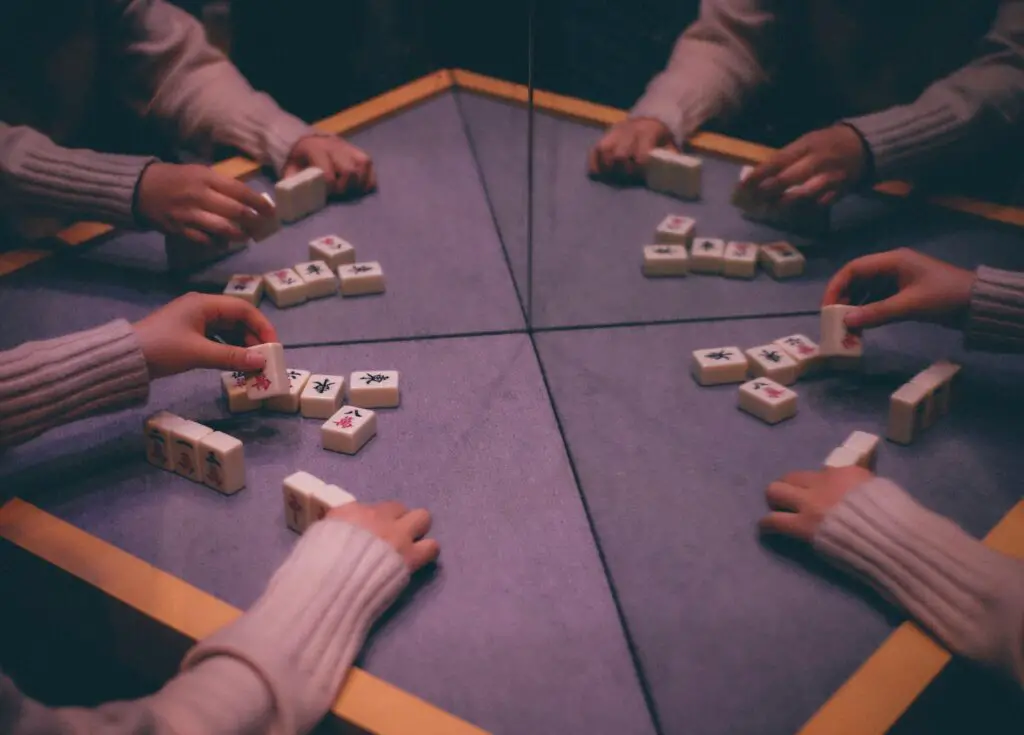
Social Skills Games
Social Skills Games are a fun and effective way to help kids develop crucial social skills while engaging in enjoyable activities.
These games can teach social communication, perspective-taking, emotional skills, and much more.
The importance of these games lies in their ability to make learning social skills enjoyable for kids, leading to better retention and application of the learned skills in real-life situations.
What are Social Skills Games?
Definition and Importance
Social skills games are activities or games designed specifically to teach children important social skills such as communication, social interaction, emotional learning, and social behavior.
These games aim to make learning social skills an enjoyable experience for kids, helping them engage with and learn from their peers in a positive and supportive environment.
The importance of these games cannot be overstated as they play a crucial role in enhancing social competence and building the necessary skills for successful social interactions.
Types of Social Skills Games
There are various types of social skills games available that cater to different social and emotional learning needs.
Some games focus on teaching communication skills, while others emphasize emotional skills and understanding social cues.
Additionally, there are games that help in boosting social behavior, making eye contact, and taking turns during social interactions, all essential for positive social development.
Benefits for Children
Social skills games offer numerous benefits for children. They provide a safe and supportive platform for kids to learn and practice different emotions, facial expressions, and social interactions.
Moreover, these games help in enhancing social problem-solving skills, teaching coping strategies, and creating opportunities for kids to navigate various social situations with confidence and competence.
How to Teach Social Skills through Games
Choosing Suitable Games
When selecting social skills games, it is essential to consider the specific skills that need to be addressed and the age group of the children.
There are games that are suitable for younger kids, focusing on foundational social skills, while others are designed for older kids, targeting more advanced social development needs.
It is crucial to choose games that align with the learning objectives and are engaging and age-appropriate for the children.
Incorporating Social Interaction
One of the key aspects of teaching social skills through games is to encourage and facilitate social interaction among the children.
Games that promote group activities, teamwork, and collaboration provide an excellent platform for kids to engage with each other, practice social communication, and build positive social relationships.
By incorporating social interaction into games, children can learn to navigate social situations effectively.
Reinforcing Learning Through Play
Games that teach social skills often use play as a means to reinforce the learning process. Through interactive and fun activities, children are able to practice and internalize the social skills they are learning.
This experiential learning approach enhances the retention and application of social skills in real-life scenarios, making the learning process more effective and enjoyable for the kids.
Activities and Games for Kids
Board Games for Social Skills
Board games are popular choices for teaching social skills as they often require turn-taking, following rules, and communicating with other players.
These games provide an opportunity for kids to learn important social skills such as patience, strategy, and good sportsmanship.
Additionally, board games can be used to tackle specific social challenges, making them versatile tools for teaching various social skills.
Games that Teach Emotional Skills
Emotional skills games are designed to help children recognize, understand, and manage their emotions in different situations.
These games provide a platform for kids to express and process their feelings, practice empathy, and develop emotional intelligence.
By engaging in such games, kids can enhance their emotional awareness and regulate their emotions effectively.
Teaching Communication Skills through Games
Games focused on communication skills aim to improve verbal and non-verbal communication abilities in children.
They facilitate the development of effective listening, speaking, and comprehension skills, as well as the interpretation of social cues.
Through these games, kids can practice initiating and maintaining conversations, expressing themselves clearly, and understanding the perspectives of others.
Building Social Skills through Play
Teaching Perspective-Taking
Games that involve perspective-taking help children understand and consider the thoughts, feelings, and viewpoints of others.
By engaging in activities that require them to see situations from different perspectives, kids develop empathy, tolerance, and the ability to communicate and collaborate effectively with others.
These games foster a deeper understanding of social dynamics and enhance interpersonal relationships.
Encouraging Social Interaction
Encouraging social interaction through play is essential for fostering positive social relationships and healthy communication among children.
Games that promote shared experiences, cooperative play, and group discussions create opportunities for kids to engage in meaningful interactions, share ideas, and learn from each other.
By encouraging social interaction, children can develop strong social bonds and gain valuable social skills.
Practicing Different Emotions and Facial Expressions
Practicing different emotions and facial expressions through games helps children recognize and understand the feelings of themselves and others.
By engaging in activities that involve expressing and identifying emotions, kids develop emotional awareness, empathy, and the ability to interpret and respond to the emotions of those around them.
These games contribute to the development of strong emotional literacy and social-emotional skills.
Using Social Skills Games for Coping Skills
Integrating Coping Mechanisms into Games
Social skills games can integrate coping mechanisms to help children manage stress, anxiety, and challenging situations.
By incorporating coping strategies into games, kids learn effective ways to deal with emotional difficulties, navigate social challenges, and regulate their responses to various stressors.
These integrated coping mechanisms provide valuable tools for children to build resilience and emotional well-being.

Developing Emotional Learning through Play
Emotional learning is a key component of social skills development, and games offer an engaging platform to facilitate this process.
Through various games, children can learn to identify, express, and cope with different emotions, develop strategies for emotional regulation, and cultivate empathy and understanding towards others’ emotional experiences.
This emotional learning through play contributes to the overall development of children’s social and emotional skills.
Teaching Children Coping Strategies through Games
Social skills games provide an effective means to teach children valuable coping strategies.
Whether through role-playing, problem-solving activities, or mindfulness games, kids can learn and practice coping skills that help them manage their emotions and responses in challenging situations.
By acquiring and internalizing coping strategies, children can develop resilience and adaptability, crucial for their well-being and social functioning.

